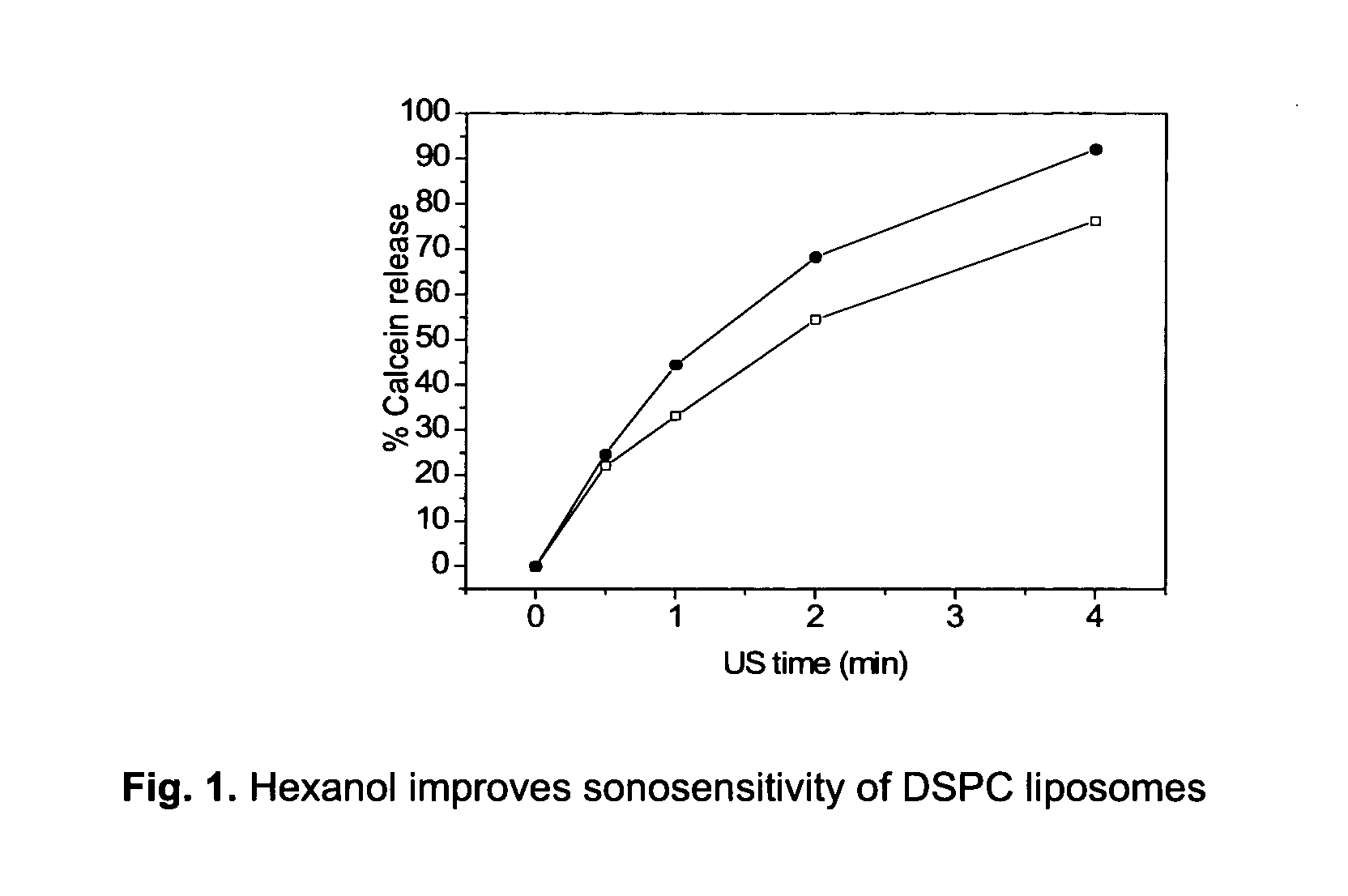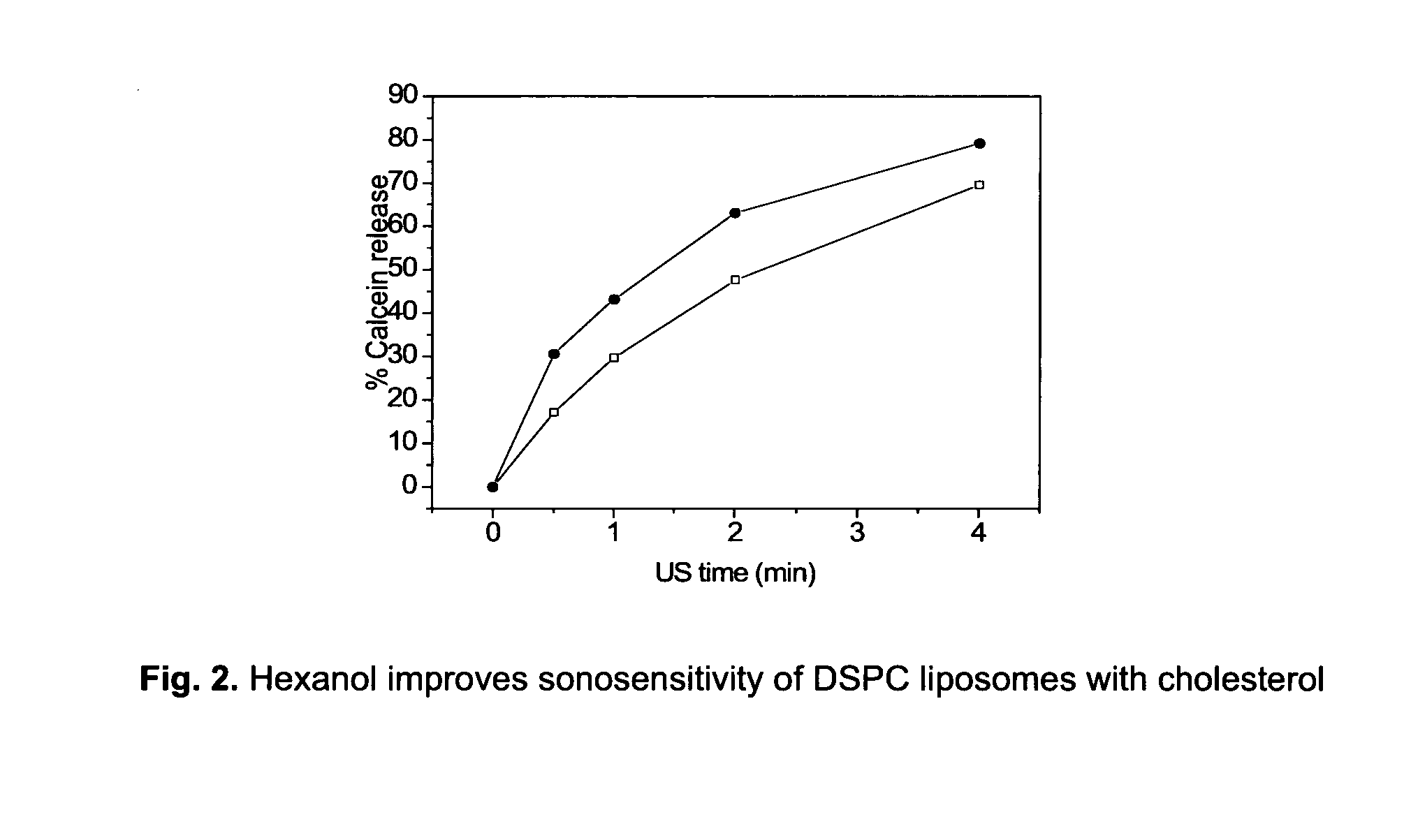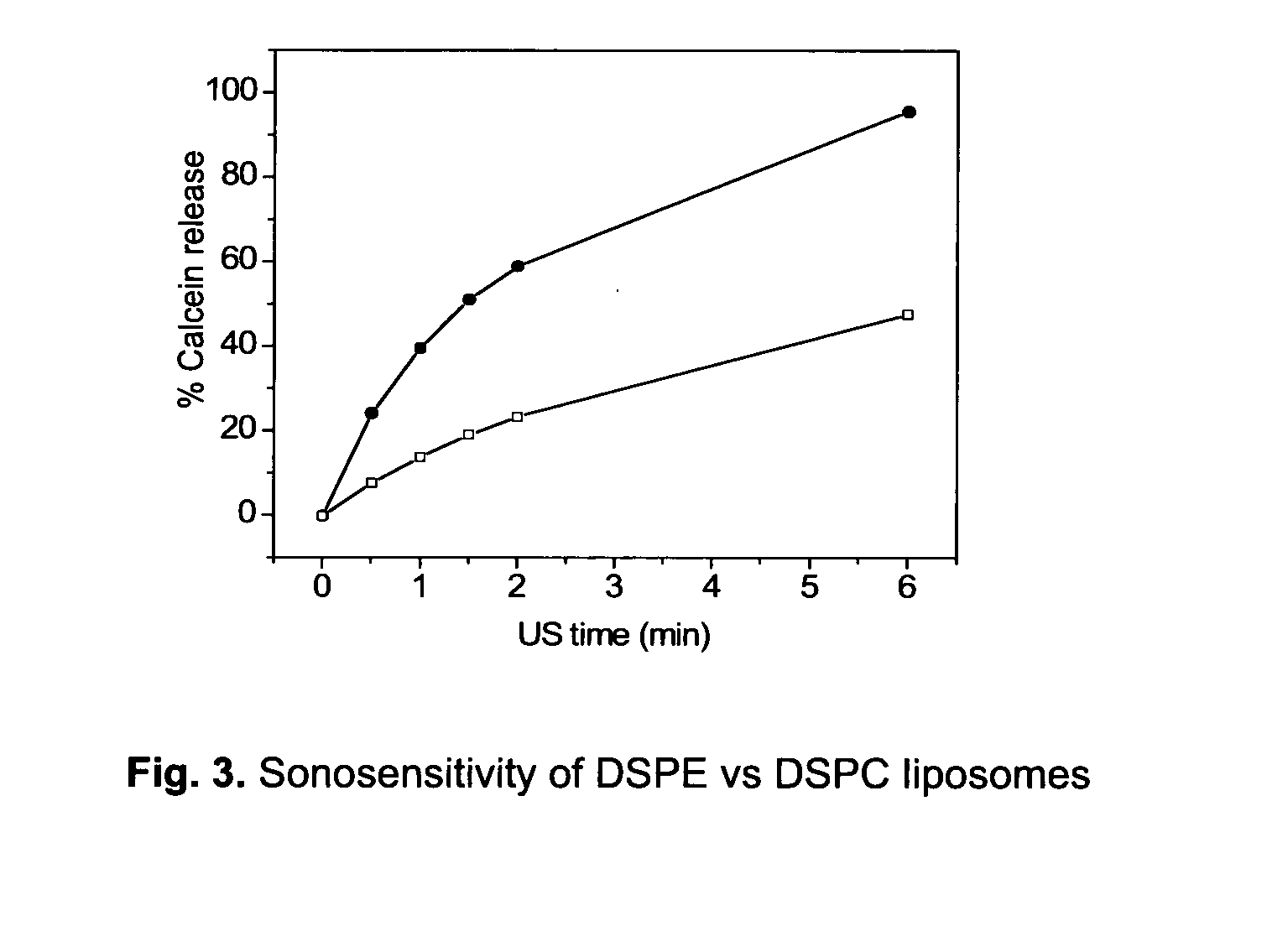Lipophilic drug carrier
- Summary
- Abstract
- Description
- Claims
- Application Information
AI Technical Summary
Benefits of technology
Problems solved by technology
Method used
Image
Examples
example 1
Preparation of Liposomes Containing Fluorescent Drug Marker Calcein
[0080]DSPC, DSPE, DOPE and DSPE-PEG 2000 were purchased from Genzyme Pharmaceuticals (Liestal, Switzerland). Cholesterol, calcein, HEPES, TRITON-X100 (10% solution), sodium azide and sucrose were obtained from Sigma Aldrich. Hexanol was supplied by BDH Chemicals Ltd. (Poole, England).
[0081]Calcein carrying liposomes (liposomal calcein) of different membrane composition were prepared using the thin film hydration method (Lasic 1993). The nominal lipid concentration was 16 mg / ml. Liposomes were loaded with calcein via passive loading, the method being well known within the art. The hydration liquid consisted of 10 mM
[0082]HEPES (pH 7.4) and 50 mM calcein. For the preparation of liposomal calcein containing hexanol, the hydration liquid was supplemented with a given amount of hexanol 2 days prior to usage in the lipid film hydration step.
[0083]After three freeze-thaw cycles, the liposomes were down-sized to 80-90 nm by ...
example 2
Characterisation of Calcein Containing Liposomes
[0085]Liposomes were characterised with respect to key physicochemical properties like particle size, pH and osmolality by use of well-established methodology.
[0086]The average particle size (intensity weighted) and size distribution were determined by photon correlation spectroscopy (PCS) at a scattering angle of 173° and 25 deg C (Nanosizer, Malvern Instruments, Malvern, UK). The width of the size distribution is defined by the polydispersity index. Prior to sample measurements the instruments was tested by running a latex standard (60 nm). For the PCS measurements, 10 μL of liposome dispersion was diluted with 2 mL sterile filtered isosmotic sucrose solution containing 10 mM HEPES (pH 7.4) and 0.02% (w / v) sodium azide. Duplicates were analysed.
[0087]Osmolality was determined on non-diluted liposome dispersions by freezing point depression analysis (Fiske 210 Osmometer, Advanced Instruments, MA, US). Prior to sample measurements, a r...
example 3
US Mediated Release Methodology and Quantification For Calcein Containing Liposomes
[0088]Liposome samples were exposed to 20 or 40 kHz ultrasound up to 6 min in a custom built sample chamber as disclosed in Huang and MacDonald (Huang and Macdonald 2004). The US power supply and converter system was one of two systems: (1) ‘Vibra-Cell’ ultrasonic processor, VC 750, 20 kHz unit with a 6.35 cm diameter transducer or (2) ‘Vibra-Cell’ ultrasonic processor, VC754, 40 kHz unit with a 19 mm cup horn probe, both purchased from Sonics and Materials, Inc. (USA). Pressure measurements were conducted with a Bruel and Kjaer hydrophone type 8103.
[0089]Both systems were run at the lowest possible amplitude, i.e. 20 to 21% of maximum amplitude. For the 20 kHz system this translates to a transducer input power of 0.9-1.2 W / cm2 and a peak-to-peak transducer pressure of about 460 kPa.
[0090]For the US measurements, liposome dispersions were diluted in a 1:500 volume ratio, with isosmotic sucrose solutio...
PUM
| Property | Measurement | Unit |
|---|---|---|
| Fraction | aaaaa | aaaaa |
| Molar density | aaaaa | aaaaa |
| Molar density | aaaaa | aaaaa |
Abstract
Description
Claims
Application Information
 Login to View More
Login to View More - R&D
- Intellectual Property
- Life Sciences
- Materials
- Tech Scout
- Unparalleled Data Quality
- Higher Quality Content
- 60% Fewer Hallucinations
Browse by: Latest US Patents, China's latest patents, Technical Efficacy Thesaurus, Application Domain, Technology Topic, Popular Technical Reports.
© 2025 PatSnap. All rights reserved.Legal|Privacy policy|Modern Slavery Act Transparency Statement|Sitemap|About US| Contact US: help@patsnap.com



